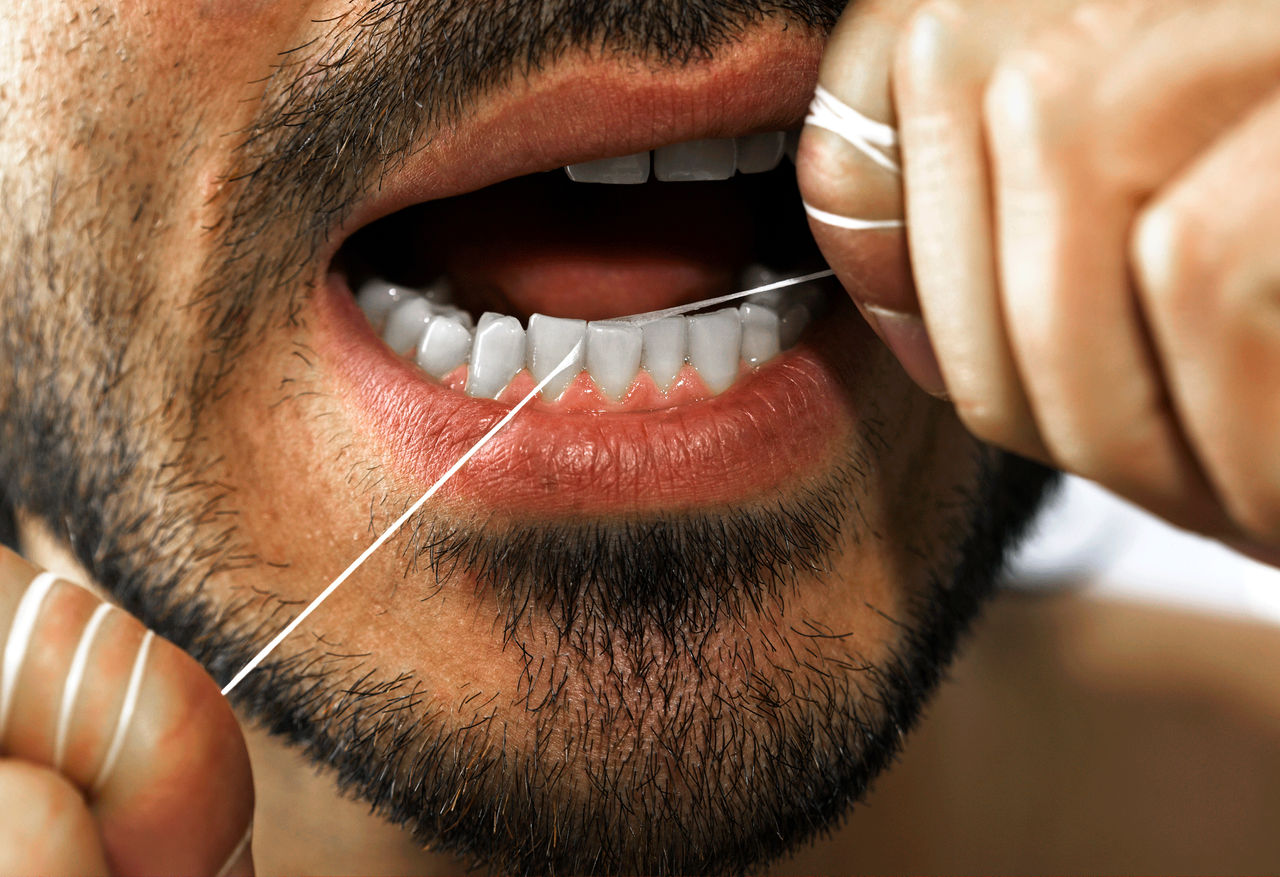Self-care for Teeth and Gums: Fact and Fiction

Odds are, you can keep your teeth all your life if you practice good oral hygiene. Finding out what works and what doesn’t for healthy teeth and gums is key.
The Centers for Disease Control and Prevention (CDC) has news that might make you smile: You can keep your teeth for your entire lifetime.
But to reach that goal, you’ll need to practice good oral hygiene to prevent tooth decay, which affects over a fourth of American adults, and periodontal (gum) disease, which affects nearly half of American adults and can result in tooth loss.
Of course, regular dental visits and cleanings are important. It’s not always clear, however, what the best strategies are for daily care of your oral health. Researchers from the State University of New York’s University at Buffalo (UB) tackled this question, searching databases of studies to find scientific evidence of what really works — and what doesn’t — when it comes to self-care for teeth and gums.
YOU MIGHT ALSO LIKE: Is Gum Disease Hereditary?
The research team, headed by Frank Scannapieco, DMD, PhD, chair and professor of oral biology at the UB School of Dental Medicine, hopes the team’s research will help dentists, dental hygienists, and the public understand facts versus fiction and advertising hype when it comes to home oral healthcare.
Old-fashioned frequent tooth brushing is important
Dental caries, better known as cavities, are caused by plaque, a sticky film of bacteria that constantly forms on teeth. Unless plaque is removed, it breaks down tooth enamel, the CDC explains.
What’s more, in addition to harming tooth enamel, plaque can cause gingivitis, a mild form of gum disease resulting in irritated and inflamed gums. Plaque also causes periodontitis, a serious gum infection that damages tissues and can eventually loosen teeth.
Brushing your teeth is the cornerstone of good oral hygiene and a reliable way to control dental plaque. If you like using your electric toothbrush, that’s fine. But according to the UB research, published in the Journal of the International Academy of Periodontology, electric toothbrushes are no more effective at reducing plaque and the risk of gum disease than your basic non-electric toothbrush. Advertising claiming otherwise just isn’t true, according to the study.
The study also noted interdental brushes (small, toothpick-sized hygiene tools with tiny brushes on the side that clean between teeth) and water picks performed best at preventing gum disease, as long as they are used in combination with daily brushing of teeth.
When it comes to dental floss, the research team found few published studies about flossing, but there’s little doubt it is very beneficial, according to Scannapieco.
“While there are few studies available that specifically examined toothbrushes or floss alone, both are still essential. Floss is especially useful to remove interdental plaque for people who have tight space between their teeth. Floss also likely reduces the risk for cavities that form between the teeth,” he says.
More oral health self-care advice
Old-fashioned toothpicks, it turns out, are not effective at fighting gum disease, but they can be a useful tool for monitoring your gum health, Scannapieco said. If you gently prod your gums with a toothpick and note any bleeding, you could have gum disease — so, make an appointment with your dentist for diagnosis and treatment, if needed.
Although there are countless mouthwashes available, some may freshen your breath but do little for actual oral health. Among studies of mouth rinses, the UB researchers found that mouthwashes containing chlorhexidine gluconate (CHX), cetylpyridinium chloride (CPC), or certain essential oils (specifically eucalyptol, menthol, methyl salicylate, and thymol found in Listerine) were proven to be effective at significantly reducing plaque and gingivitis.
The UB team found that mouthwashes and toothpaste containing the ingredient triclosan significantly reduced plaque and gingivitis. That said, they noted the compound has been linked to the development of various types of cancers and reproductive defects. Triclosan has been removed from most popular toothpastes in the U.S.
The UB investigators found insufficient evidence that mouthwashes based on a host of other ingredients — including green tea, tea tree oil, hydrogen peroxide, sodium benzoate, and stannous fluoride — reduced or helped prevent gum disease.
Surprisingly, they also did not find proof professional plaque removal (the process of removing plaque from teeth with a scraper) prevents gum disease. In addition, although the UB team notes probiotics may turn out to be a promising preventive strategy against gum disease in the future, that strategy remains unproven, based on studies done so far.
Updated:
December 14, 2022
Reviewed By:
Janet O'Dell, RN